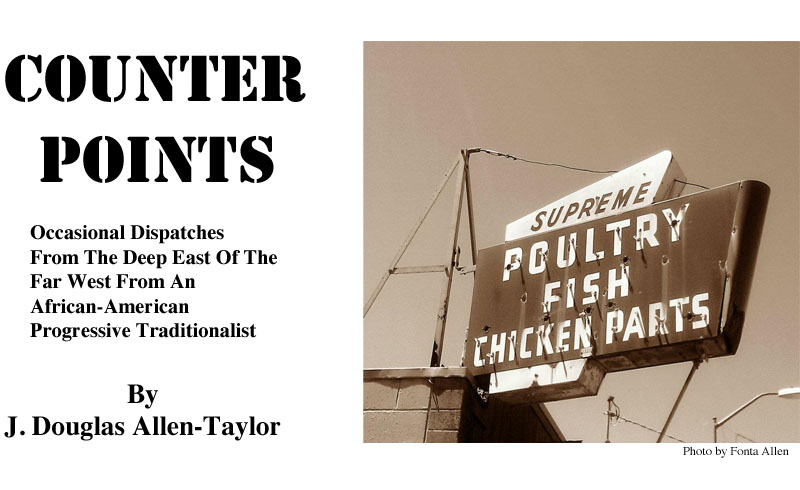|
|
THE TACTIC OF DISRUPTION
The tactic of disruption is one of the more powerful weapon in the political and community activist arsenal. But like many weapons, it can wear out from overuse or poorly-targeted use. You can certainly make a case that political disruption in the post-Occupy Oakland era has either reached that point already, or may be about to. That’s been my feeling for a while, a feeling that was renewed while watching the recent Oakland City Council debates over the quarter of a million dollar Strategic Policy Partnerships-William Bratton police consultant contract. At its base, the tactic involves the orderly, or disorderly, disruption of a targeted government activity unless and until a certain political demand or set of demands is met. A radical added element of the tactic that is sometimes used—one that is part of the character of the recent Oakland actions—is the simultaneous non-cooperation with the functions of government that are normally the vehicle by which the political demand could be carried out. A viewing of the online video of the January 15 meeting of the Public Safety Committee of the Oakland City Council, where the SPP was first considered, shows an example of this dual disruption-noncooperation tactic. Boos and shouts from several in the Council chambers audience began as soon as Oakland Police Chief Howard Jordan attempted to begin his explanation of the consultant contract, causing Mr. Jordan to have to raise his own voice so that Councilmembers, others in the chambers, and the viewing audience could hear him, and causing Public Safety Committee Chairperson Noel Gallo to immediately threaten to send police upstairs to clear the balcony of the loudest protesters. While Mr. Gallo tried to restore order so that Mr. Jordan could make his presentation, a protester took the public speaker’s podium and began addressing the assembled crowd. When the first speaker attempted to give a detailed analysis and critique of the police contract, protesters in the audience began attempting to shout him down whenever he appeared to make statements that could be interpreted as being pro-contract or pro-police. The early and repeated disruption of the meeting got so bad that the father of Alan Blueford—the 18 year old shot and killed by Oakland police officers last spring and one of the police justice causes protesters have been rallying behind—had to come to the public mic to ask protesters to keep quiet in order for the business of the committee to go forward. Either because of Mr. Blueford’s appeal, or because of Mr. Gallo’s hard line on removal of disruptive protesters, or some combination of the two, the remainder of the 84 public speakers and committee discussion went fairly smooth. But the disruptive tactics carried over into the full City Council meeting the following week, when so many people showed up for the police consultant contract decision that the chambers could not accommodate them all, and viewing screens had to be set up in adjoining committee meeting rooms. The City Clerk noted that “more than” 260 members of the public signed up to speak on the item, with each person allotted one minute of speaking time to address the Council. Under City Council rules, a person signing up to speak on a Council item can “cede” their time to another speaker, so long as the person “ceding” is actually in the Council chambers at the time. Assuming that some 60 persons signed up to speak but left City Hall before actually taking the podium, that would work out to 200 minutes of actual speaking time—a little over 3 hours—not accounting for the time taken between public speakers. Many speakers coming out to the January 22 Council meeting in protest of the police consultant contract knew a way to stretch that time out. Some stood at the podium arguing procedural rules—which aren’t counted against the one minute speaking time—while others simply continued on speaking long after their allotted time was up, refusing repeated requests by Council President Pat Kernighan to leave the podium, some turning to their backs to the Council and addressing the audience when the microphone was turned off. Some appeared to be attempting to have police arrest them, or to force either the clearing of the chambers of spectators or the suspension or abortive ending of the Council meeting altogether. Ms. Kernighan—who is far more accommodating and less decisive than Mr. Gallo in her handling of meetings—spent considerable time explaining procedure or pleading with speakers to respect the process and others in the chamber. Public speaking on the item lasted eight hours, with the final vote coming at 2 in the morning. Much of the opposition to the consultant contract surrounded one of the consultants—former L.A. and New York police chief William Bratton—because of his espousal of the controversial “stop-and-frisk” tactic. Some might argue that the disruptive tactics surrounding the SPP consultant contract failed. With Mr. Gallo noting that “crime has been governing Oakland for too long,” and District 3 Councilmember Lynette Gibson McElhaney adding that “We have got to change—radically. The reason I'm not afraid of the bogeyman named Bratton is that we have tremendous community oversight," Council approved the SPP contract on a 7-1 vote (Councilmember Desley Brooks voting no). But perhaps that’s what the disruptors were looking for, a defeat around which to rally and build support for other, later, actions. This will be, obviously, a continuing discussion. More, later.
|
